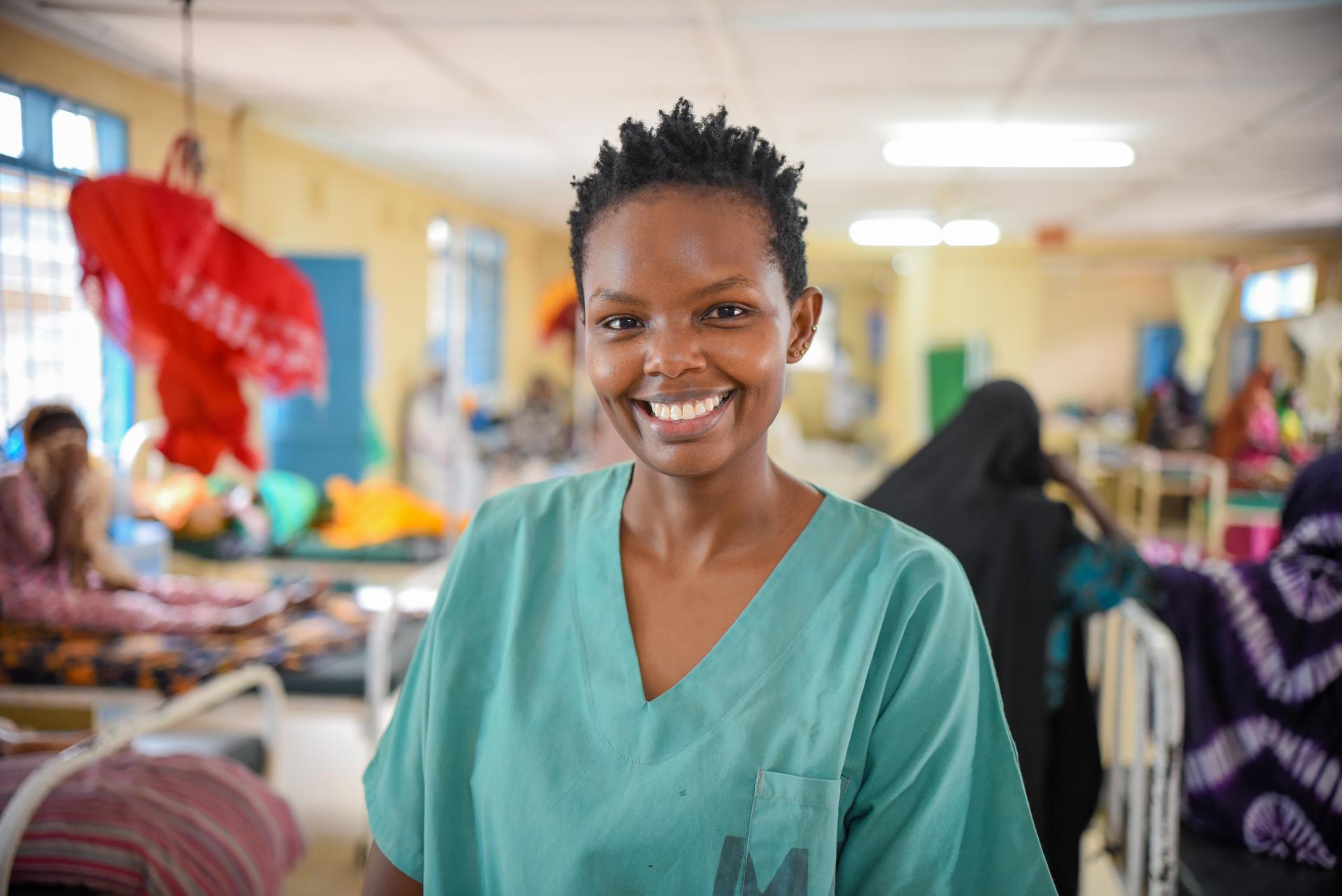Consolata Mwaniki is the Midwife Supervisor at the maternity ward of MSF’s 100-bed hospital in Dagahaley. She has held the position at helm of the maternity unit since December last year, after serving as a midwife in the same unit for three years.
What does it take to be a midwife? “Any registered community nurse, can practice as a midwife. There’s a whole course on midwifery taught in nursing school. Though one can also further specialize through advanced studies in midwifery,” she says.
As a midwife supervisor, Consolata manages the maternity ward, ensuring all services run smoothly and mothers can deliver safely. She leads a team of more than 20 staff, including 10 midwives, 8 auxiliary nurses, a registrar among others. Among other duties, she assists the midwives in dealing with complicated cases; acts as a team leader in emergency cases; establishes linkages with other departments in the hospital; and ensures there’s sufficient stock of all commodities needed for the running of the unit.
Being a midwife isn’t always easy at first, and Conso – as she’s popularly referred to – says the first time she helped a woman deliver, she almost ran away. Having come from a background of managing trauma cases and patients in need of critical care in a position she held previously at Kijabe Hospital in Nairobi, she worked in a maternity ward for the first time in Dadaab in 2014.
Consolata says she loves working as a midwife that she may find it quite difficult onboarding onto another unit. “I have come to love midwifery, I read a lot about it, trying to learn new things every day. It has become my passion,” she says. “Working as a midwife, helping deliver new lives, is satisfying. The fact that at the end of the day a mother who came screaming in labour, leaves happy, holding her baby in her arms gives a deep sense of elation that I cannot describe. Every successful delivery calls for a celebration.”
Of course, it’s not always a dance in utopia in the maternity. There are some sad moments they have to face – losing a mother topping the chart. “It’s sad for a mother to lose a baby, but losing a mother is a dark day for us. We always do our best to ensure this never happens, but there are scenarios that could be out of our control. For instance, some mothers adamantly decline emergency interventions and some in critical state are also sometimes referred from Kenyan hospitals which are a significant distant from the camp: by the time they get here, it’s already too late to save them,” she says.
One of the biggest challenges she still faces is language barrier. “Most of the mothers who deliver in the facility speak only Somali, I have learnt some Somali over time and can understand some of the words, though I still struggle to speak the language,” she says.
Consent issues also remain a longstanding challenge. “Getting mothers to consent to emergency procedures such as caesarean section among others can take long and often involves a lengthy procedure with the family and even the clan, which sometimes drastically shifts the potential outcomes of the delivery to the undesired side,” she says. “But we have devised ways to hasten the process, and continue to learn and improve on a case by case basis.”
“Growing with MSF is something I’d love, and so far, it’s going quite great, but I’d also like to have a family of my own someday, you know, make my own babies,” she giggles, “and watch them grow.”
MSF is currently the only organisation providing medical care in Dagahaley – one of the camps that make up the Dadaab refugee complex. MSFs health services are open to host communities and are a crucial lifeline for unregistered refugees who are denied access to basic services in the camps.
In 2020, MSF assisted 3,070 deliveries in the hospital, including 154 through caesarean section.
